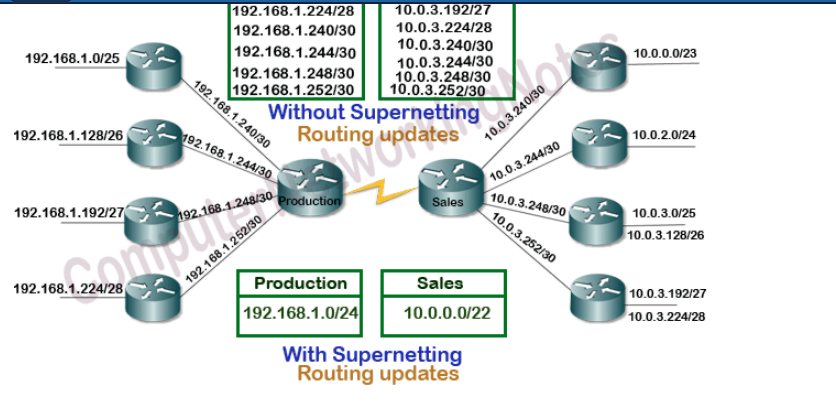Asked by
AL MaMun (4 Golds)
Friday, 18 Dec 2020, 11:02 PM
at (IT Job Preparation
Data Communication and Networking)
|
|
|
|
|
Answer(s):
What is Supernetting? Supernetting is the process of summarizing a bunch
of contiguous Subnetted networks back in a single large network. Supernetting
is also known as route summarization and route aggregation Why Supernetting is done? Supernetting is mainly done for optimizing the
routing tables. A routing table is the summary of all known networks. Routers
share routing tables to find the new path and locate the best path for
destination. Without Supernetting, router will share all routes from routing
tables as they are. With Supernetting, it will summarize them before sharing.
Route summarization reduces the size of routing updates dramatically. Following
figure shows an example of route summarization. Advantage of Supernetting Supernetting provides following
advantages. ü It
reduces the size of routing updates. ü It
provides a better overview of network. ü It
decreases the use of resources such as Memory and CPU. ü It
decreases the required time in rebuilding the routing tables. Supernetting can be done only in same address space.
If address space is completely different between two or more routes, they
cannot be summarized in a single route. For example, we can’t summarize the route
192.168.1.0/25 with the route 193.168.1.128/25. A route can be summarized only
in a route which is bigger than it in block size. For example we can’t summarize a route of block size
64 in a route of block size 32 but we can summarize two routes of block size 32
in a single route of block size 64.
The easiest way of calculating the summarized route
is adding the block size of all sequential routes and using the Subnetting
which provides the block size that is equal to the result of addition. For
example if we have two sequential routes of block size 16, we can summarize
them in a single route of block size 32. |
